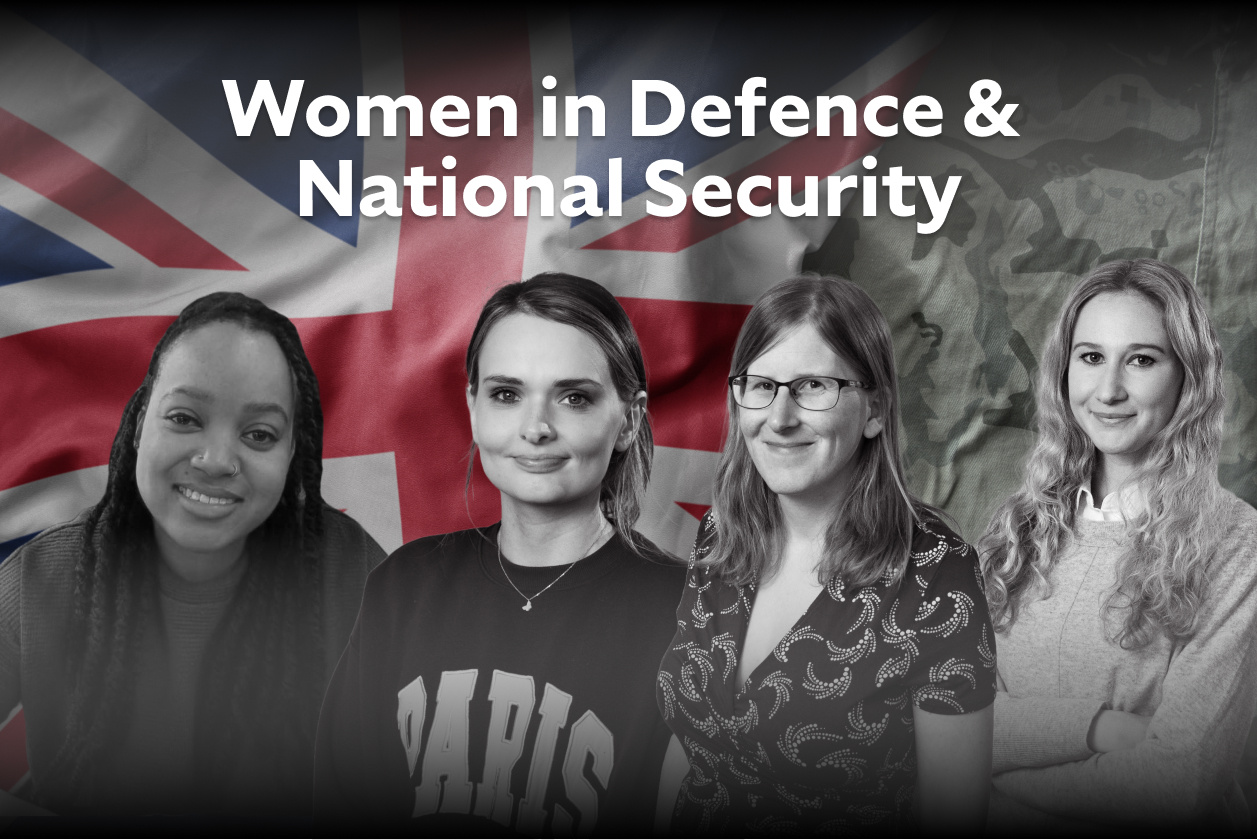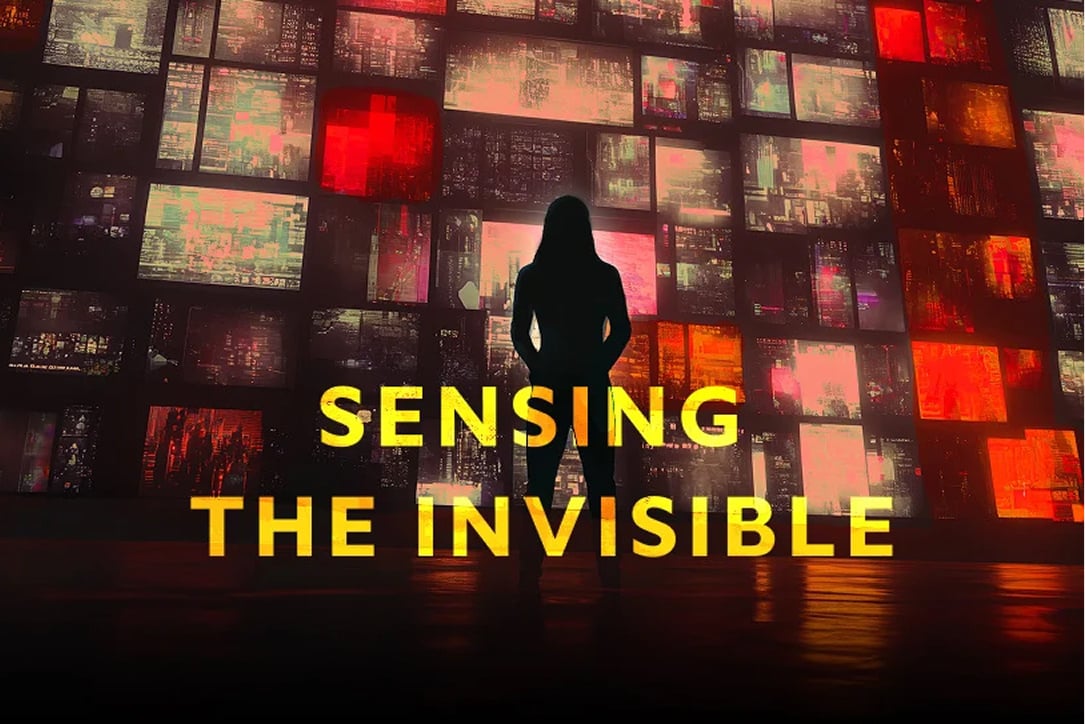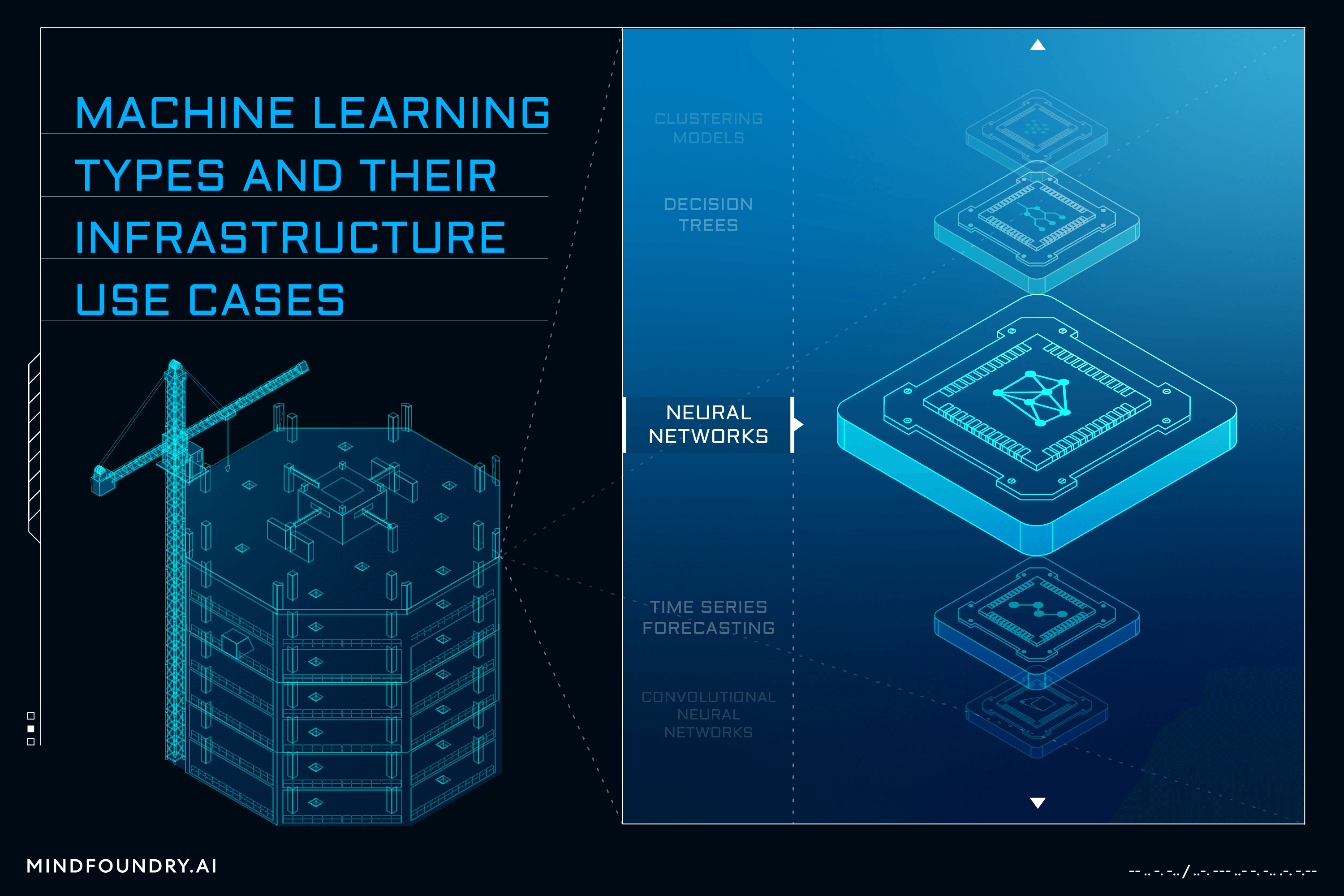AI for Sensor Fusion: Sensing the Invisible
In Defence and National Security, mission-critical data often emerges from a multitude of different sensor types. With AI, we can bring this...

The Defence and National Security sector has arguably the highest stakes of any sector. The organisations, institutions, and government bodies that comprise it work together every moment of every day to ensure our safety, not just as individuals but as a society. And yet, in 2023, only 24% of the UK Defence Sector jobs were held by women. Considering the sector’s importance and its impact on all our lives, we believe this imbalance needs to be addressed.
At Mind Foundry, our mission is to create a future where humans and AI work together to solve the world’s most important problems. In the context of Defence and National Security, this means working with partners and experts to develop and deploy UK Sovereign AI capabilities. To give us the best chance of success, one of the first steps for us is building a team with a diverse range of backgrounds and experiences to foster the ideal culture of innovation and ingenuity.
In this blog, we tell the stories of some of the women at Mind Foundry whose invaluable contributions are helping advance the UK’s AI capabilities.
Poppy Martin - Head of Applied Machine Learning, Defence
I lead delivery in our Defence and National Security sector. My role involves supporting and enabling our delivery and go-to-market teams to identify, win, and deliver critical outcomes for our customers.
Steph Semple - Project Manager
My role is to ensure projects meet deliverables and milestones and operate within their budget. At the same time, I help monitor risks and maintain communication with key stakeholders.
Hannah Gedge - Maritime Mission Systems Manager
I help build, manage, and maintain our relationships with our partners and end users in the maritime space. I also work closely with our delivery teams, aligning project management, product, and engineering to ensure not only Mind Foundry succeeds, but we deliver the best outcome for our partners to succeed.
Syreeta Cummings - Product Manager
I focus on capabilities surrounding sensor placement and the fusion of sensor data. My role is to align technology with user needs and the ever-growing innovation taking place within the UK Defence sector.
Jess Saxton - Project Manager
My role contributes to the successful delivery of projects, ensuring they’re delivered on time and within budget. I regularly attend customer calls, update stakeholders on progress, and ensure all of our deliverables are delivered to the standard required.
One of the main challenges that our team encountered was having to navigate a significantly male-dominated sector.
Syreeta: You may find that you are the only woman in a meeting of 10 people, or you may arrive at a military establishment with a male colleague who is addressed with any questions or suggestions whilst you may be forgotten about despite having the necessary expertise for the discussion. It can be difficult to assert yourself in these situations.
Jess: In many of the meetings I attend and the discussions I have, there are a lot of males present, and sometimes, that can impact my confidence and self-belief.
Hannah: Whilst this has not necessarily added any more difficulty to my role, it has made me more considerate of my approach and more understanding of the sector. However, that is not to say that it has been easy; in my very first meeting, I was the only woman in a room full of 14 men. What I would say is you acknowledge it and begin to have the mindset of “Well, let's have a go at changing that demographic”.
Other significant obstacles in our team’s experience involve incorrect assumptions about their role.
Poppy: The one that springs to mind the most is the assumption that you're not technical, that maybe you're the project manager. Often, you'll find that a client may look at your male colleague for an answer over you, which can be frustrating.
Steph: There are also real challenges related to a lack of access to leadership opportunities and difficulties with getting a healthy work/life balance.
When we asked this question, one recurring theme emerged, namely that having a diverse range of perspectives in a team has a positive impact on that team’s output.
Steph: Quite simply, diversity of thought leads to greater innovation. I think if we can bring as many diverse backgrounds and experiences onto the team as possible, it will inevitably have a positive impact on what we deliver to our partners and customers.
Poppy: Men and women have different experiences, and those different experiences will feed into the development of products and how we approach projects. All of that will lead to more success for our end users and provide them with applications that enable them to succeed.
Syreeta: Greater representation of women in Defence brings with it diverse perspectives, which in turn enhance the ability to solve complex problems. A balanced workforce also helps challenge stereotypes and leads to equality within a sector that has traditionally been male-dominated.
Greater female representation can also help inspire the next generation to pursue a career in Defence and National Security and provide another voice in a space where female voices are less often heard.
Jess: I think it's important because we need to have a broad set of experiences to bring different ideas and help grow innovation. It will also inspire others to join, as they will see other women on the team who they may see as role models. It will hopefully inspire a new generation of women in Defence.
Hannah: In a sector historically dominated by men, we could do with more female voices in the room and sometimes more considered voices in rooms, given where the world is today and the decisions being made.
Despite the fact that the sector has traditionally been dominated by men, there are still women involved in Defence and National Security who have inspired members of our team.
Steph: One woman who has inspired me is Colonel Caroline Woodbridge-Lewin. Caroline is a mother who has had a successful military career. She is incredibly clever, approachable, and always happy to share insight and advocate for women in Defence and technology.
Syreeta: In my previous job, I was given the opportunity to reach out to 2 senior women within the MOD for mentorship. They both agreed, and they both offered a great deal of advice about asserting myself in a male-dominated sector. Director of Overseas Bases, Dr Sam Griffiths, taught me the value of building strong networks across Defence, particularly in the technology space. Jules Pearson BEM, the Digital Academy Lead within Defence Digital, gave me great advice for navigating a male-dominated space and inspired me to feel confident enough to speak assertively about topics in which I had expertise.
Hannah: For me, the women who inspire me are those who have served and are currently serving in our armed forces. Now more than ever, the situations they work in are highly pressured and stressful, but they continue to do so with immense pride.
From globally recognised Nobel Prize winners to former colleagues, inspirational women can be found everywhere.
Jess: I was particularly inspired by Malala Yousafzai and her story. I think it was really empowering, and her devotion and strength towards championing education for women and young girls was really empowering.
Poppy: A woman who inspired me was a project manager at a previous company that I worked for. She was pragmatic and able to deal with all situations. She was inspirational just by doing her job and interacting with the people around her. I still regularly meet with her and call her whenever I need advice.
From their own experiences, our team had a range of advice to give to any women considering a career in Defence and National Security.
Syreeta: Be confident in your abilities! You were hired for a reason, and your unique perspective is valuable and will have a meaningful impact on the growth of technology within the Defence sector.
Steph: I’m going to cheat and give 5 bits of advice...
1) Ask for feedback and take constructive criticism.
2) Find a mentor to help you navigate this male domain.
3) Never stop learning and developing.
4) Communicate clearly.
5) Look at the company culture and how it supports women.
However, if there was one piece of advice that came up more than any other, it was this…
Jess: Just go for it! Even if you don't have direct experience in the sector, you should trust in your abilities and have the confidence to take that first step.
Poppy: Don't worry about it being difficult in such a male-dominated sector. Your experience, opinion, and capabilities will be incredibly useful and valid. We need more women within Defence, so take the jump and help support such an important sector.
Hannah: Having had very little exposure to Defence until only nine months ago, I have only had positive experiences and welcoming conversations since. It is a hugely complex world to enter, and there will always be something new to learn, so I would advise any woman considering a career in Defence to take the plunge.
Poppy: Everybody at Mind Foundry is supported, regardless of their gender or demographic. Our enhanced parental leave and flexible working policies support working parents. To specifically support women, we have a Women of Mind Foundry network that offers a mentorship program, provides a space to ask questions and discuss being a woman in the workplace, and ensures that we have the opportunity to meet and talk to other women within the company.
Steph: I appreciate that Mind Foundry enables me to work from home and offers a flexible working pattern, which means I can drop my children at their afternoon clubs without missing meetings or making work more difficult.
Syreeta: Mind Foundry wholeheartedly fosters a culture of inclusivity for everyone through initiatives like mentoring programs and flexible policies, which make it easier for women to thrive in any role across the company. I have also noticed a clear commitment to diversity within the leadership team that encourages women to be more visible within the company. A recent panel discussion amongst the women within Mind Foundry went a long way to demonstrate how impactful women have been and continue to be!
Hannah: I have been incredibly fortunate that Mind Foundry has supported me and my career. I have been encouraged and given positive direction to pursue opportunities and learn from those around me to better myself and my career options. In terms of culture, I am lucky to have a hugely talented, close-knit team that I work with. They are all incredibly hard-working and a perfect example of a high-performing team, communicating clearly, ensuring nobody gets left behind, and striving to achieve a common goal.
Jess: Mind Foundry supports women in a variety of ways. We’ve recently had an internal panel discussion for Women of Mind Foundry. They talked to us about their careers, where they started, the challenges they faced, and where they are now. We've got a really supportive network of women at Mind Foundry who are all willing to help one another and guide one another. I have regular catch-ups with my line manager, who's always asking me how I see my career growing and what obstacles are there that she can help me with. So, yes, I think Mind Foundry is doing a brilliant job of supporting women.
Poppy: What I love most about my job is that every single day is different, and the people that I work with are all brilliant. We get to work on really complex and important problems with real-world impact, and we’re able to solve them in innovative and interesting ways.
Steph: I love the people, the culture, and the values that drive us to do good work for Defence and National Security whilst knowing you are making a difference.
Syreeta: I love solving complex problems and working on innovative solutions that contribute to the protection of the UK. The work is challenging but extremely fulfilling. The fast-paced nature of the role is well suited to my style of working and really gives me the sense that I’m helping to shape the future of technology within Defence.
Hannah: I feel very lucky to be part of a team that actively tries, every day, to put the best technology possible into the hands of the men and women who try to reduce uncertainty and concern and, ultimately, work to keep us all safe. I find that the people I meet through my job, be it partners, end-customers, or the wider industry, share this thought. Together, they want to harness and foster the best environment possible to do just that.
Jess: It’s a cliche, but I think it is the people that I love the most. I've met so many people in this job, both internally and externally. We work with a variety of customers who have extensive knowledge and a really unique set of requirements, which is really interesting. Working in the Defence sector, I feel as though I am contributing to something incredibly important, and I find that really empowering.
Our Work Is Not Done
These women are just some of the people who are working tirelessly to help drive Mind Foundry forward towards achieving our mission. Even though there has been progress towards gender equality in the Defence sector in recent years, our work is far from done, and we must all maintain our commitment to seeing improvements in this area. We hope that articles like this will help and will show any women considering a career in Defence and National Security, either technology-based or otherwise, that the career is not only realistic and achievable but also immensely rewarding.
Discover more about Mind Foundry's work in Defence.

In Defence and National Security, mission-critical data often emerges from a multitude of different sensor types. With AI, we can bring this...

When used by malicious actors or without considerations for transparency and responsibility, AI poses significant risks. Mind Foundry is working with...

AI and Machine learning is a complex field with numerous models and varied techniques. Understanding these different types and the problems that each...